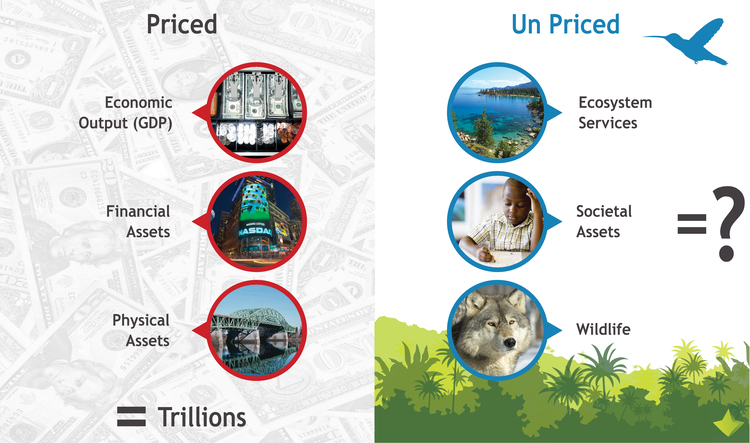
Date: 2026-01-20 Page is: DBtxt003.php txt00005777
Metrics
The IVE Initiative
Intrinsic Value Exchange ... What is IVE?
Burgess COMMENTARY
Peter Burgess
'While I am not one who engages in environmental political advocacy, I do care deeply about certain environmental issues. If I could invest in these natural assets that are dear to me, I would do so. Investing speaks louder than words alone.' — James C. Langdon Jr., geopolitical energy expert What is IVE? IVE is an online natural asset stock exchange designed to value natural and societal assets—assets like clean air and water, ecosystems, wildlife, human health and potential. IVE is one part gaming platform, one part financial exchange and one part social movement. Today, we have dozens of exchanges, such as the New York Stock Exchange and NASDAQ, to tell us the value of companies like Apple or GM. We have commodity markets, such as The Chicago Board of Trade that prices gold, oil, corn, even weather. Yet, amazingly, we do not have any equivalent mechanism to value human capital or the natural assets and ecosystem processes that make life on earth possible and bountiful.

And that is a big problem. When natural assets are unvalued, they cannot be included in our economy and are ignored or worse…destroyed. It is also a lost opportunity, because natural assets represent a huge reservoir of untapped wealth that can power growth and employment in a sustainable economy. We need to move from economy v1.0 to v2.0 by hacking ourselves the economy we deserve. Creating a mechanism to value overlooked or undervalued assets converts their intrinsic value into financial value that can be understood by and included in our economy. This transformation provides direct incentives to protect and invest in these assets and opens a powerful pathway to sustainable economic growth that is in step with ecological and societal values. We have grown to accept our economy’s poor design and exclusionary accounting. We have environmental and social causes because they do not have the power of our economy working for them. All they receive is charity. The result is a degraded natural world, high levels of poverty and inequality and an economy that is built on destructive growth. We see the evidence of this every day: frequent devastating recessions, high unemployment, and the ease with which a financial misstep can devastate the well being of billions of people worldwide. You cannot make a living from a forest, unless you cut it down. You can make billions treating sickness, but nothing by keeping people healthy. You can make a lot of money destroying the environment and even some cleaning it up afterwards, but not one penny for keeping it healthy in the first place. When assets are not properly valued they become the enemy of job and wealth creation, rather than the sources of jobs and wealth they should be.

It is so unnecessary! Waiting for inclusion in economy 2.0 are untold riches. Some estimates put the value of Human and Social Capital at $1,000-$3,000 trillion. This is the value of people that is not counted today. Think of it as all of human potential, what we could do if we had the opportunity, education, health, and financial capital required. We could also include the total value of Environmental Assets & Services. Some estimates put just the annual services portion (providing clean air, water, soil production, etc.) connected to our economy at $150-$700 trillion—these are the services we now get for “free” and that we are actively destroying because they have no financial value. The underlying assets that produce these services must be valued at some multiple of that service number, maybe 3X, 10X, or 30X. Let us be conservative and say another $2,000 trillion or more!

We are leaving a lot on the table and causing poverty in both our economic and natural world as a result. Whatever causes and values you hold dear—social justice, poverty, opportunity inequality, environmental degradation—those people, species, ecosystems all deserve more than being the recipient of handouts from a poorly designed economy. They deserved to be valued for their intrinsic worth. Join The Movement Email Address * Economy 2.0 Blog RSS Case Examples Financial Abstractions Novel Inclusions Shared Values The Problem 'Fascinating.' — Paul Hawken, author of Natural Capitalism: Creating the Next Industrial Revolution